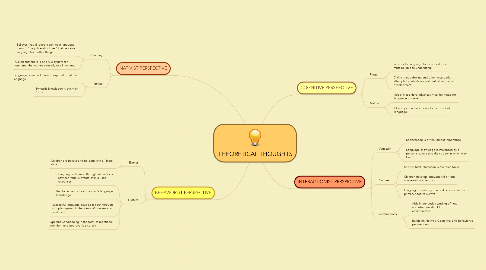
1. NATIVIST PERSPECTIVE
1.1. Chomsky
1.1.1. Believes that all people can learn language through "cognitive structures" that perceive language from other things.
1.1.2. Claims that there is one rule system for grammar that comes naturally to all humans.
1.2. Nature
1.2.1. Language is learned through exploration of own language.
1.2.2. Syntactic knowledge is the main focus.
2. COGNITIVE PERSPECTIVE
2.1. Piaget
2.1.1. In order for language to even exist, one must be able to understand.
2.1.2. Claims that babbling and other vocalization attempts by infants are not part of language development.
2.2. Nature
2.2.1. Specific cognitive advances must be made for language to develop.
2.2.2. Object permanence is key to the onset of language.
3. INTERACTIONIST PERSPECTIVE
3.1. Vygotsky
3.1.1. Socialization is of the utmost importance.
3.1.2. Language knowledge is influenced by a person's culture and the society in which they live.
3.2. Nurture
3.2.1. Sociocultural interaction is the main focus.
3.2.2. Children develop language skills from conversation attempts.
3.2.3. Language knowledge learned is based on the primary need to survive.
3.3. Contributions
3.3.1. Aids in our understanding of how and when we should communicate.
3.3.2. Builds on Nativist, Cognitive, and Behaviorist perspectives.
4. BEHAVIORIST PERSPECTIVE
4.1. Skinner
4.1.1. Children are believed to be born with a "blank slate."
4.2. Nurture
4.2.1. Language is learned through interactions between various events, stimuli, and responses.
4.2.2. Reinforcement is key to a child's language knowledge.
4.2.3. Successful language develop is seen through complex speech in the forms of phrases and sentences.
4.2.4. Operant Conditioning in the form of repetition, attention, and approval is also key.
